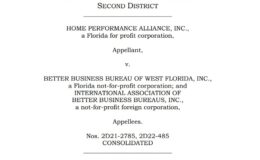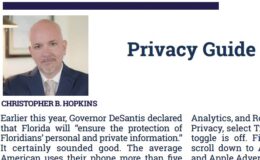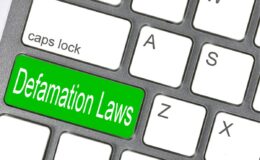First Amendment / Defamation Case Discusses “Religious Internet Filtration Software”
- By : Cbh
- Category : Defamation, Privacy
The case of Darrel Bilbrey v. David Myers and First Pentecostal, Etc. from Florida’s Fifth DCA may be a significant case as to the “church autonomy doctrine” but also yielded a reference to an interesting internet tool: faith-based internet monitoring.
Here’s how this came up in a court opinion: the Bilbrey case involves two church members in a mentor relationship where the plaintiff confided in the defendant that he (plaintiff) had been labelled as gay “as a teenager by an authority figure.” According to the court opinion, this somehow “…ultimately led to Bilbrey’s installation of a religious internet filtration and accountability system on his personal computer that reports suspect internet usage, or attempted usage, to third parties. [Defendant] Myers served as Bilbrey’s ‘accountability partner’ under the system and one report prompted Myers to ask Bilbrey if he was gay.”
A Google search revealed that there are at least ten such faith-based internet monitoring services available. Most appear to be for self-regulation or for child-raising but some software, such as CovenantEyes, notifies third parties of the user’s internet travels. In other words, a user puts this software on his or her PC/cellphone or connects via a cloud service, and permits other people to monitor the user’s internet habits. The concept is that the user is accountable to a third person — one example given included a wife concerned about her husband’s internet habits. Interestingly, this is not necessarily a filtration or blocking service. It allows the user to proceed but reports the attempted/successful access of suspect sites to third person(s).
To be clear, we’re not driving at a specific legal or social point other than to acknowledge that we did not know that faith-based third party reporting tools existed before this court case was published. To some, this kind of filter/reporting software is a welcome tool for spirituality, safe-Internetting, and peace of mind. To others, this software might represent censorship and a frightening degree of trust in other people.
Our discovery revealed some interesting and somewhat related stories such as this ACLU case where a public library filtered Wiccan and Native American religious terms. Also on a related note, see this recent L.A. Times story about a religious group studying popular movie content and ticket sales to conclude that “clean” movies are more profitable than their R rated counterparts.


